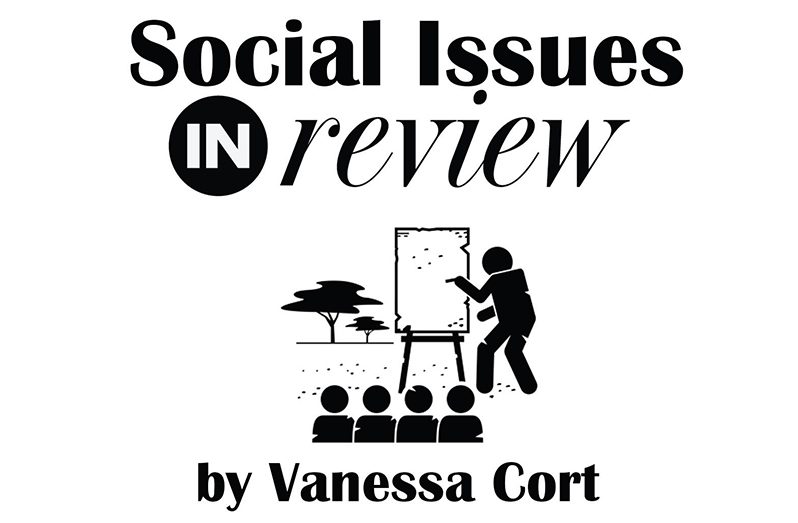FROM the time black American Arthur Ashe entered the world of professional tennis in the early 1970s, racism has been brewing beneath the surface of this white-dominated sport.
It was certainly there in 1957 when American Althea Gibson became the first black woman to win at Wimbledon, considered then and now to be the most auspicious of the four Grand Slam tennis tournaments. A year earlier, Gibson also became the first black player to win a Grand Slam event – the French Open.
She experienced countless acts of racism in an era where segregation was still the ‘order of the day’. Even though she dominated on the courts, she was excluded from social events attended by her white peers and was once refused a room in a Chicago hotel despite her Wimbledon win.
Gibson was subsequently acknowledged as one of the first black athletes to cross the ‘colour line’ and credited with paving the way for black athletes to enter this elitist sport. She has also been hailed as “one of the greatest players who ever lived” by Coach Bob Ryland, former coach to black tennis stars Venus and Serena Williams.
Arthur Ashe now has the largest tennis arena in the world – the main stadium at the U.S. Open tennis tournament – named after him. Yet as the first and only black, male tennis player to ever win a Grand Slam, he was also barred from tournaments before he eventually took three Grand Slam titles – Wimbledon, the US Open and the French Open.
In fact, on one notable occasion, Ashe, who was a champion for racial equality, stormed off the courts, forfeiting the match, after his opponent used racial slurs. The other player, Romanian Ilie Nastase, known for his disruptive acts during matches, was subsequently disqualified.
While Ashe was also disqualified for walking off the courts, he ensured that Nastase was penalised, in a move that ensured players were held accountable for poor behaviour.
It seems that in every sport where black athletes perform, they face some form of racism, either in words, actions or treatment. Boxers, footballers, swimmers, track and field stars, have all spoken of this, with boxing icon Muhammad Ali being one of the more vocal, not only about racist attitudes surrounding the sport, but racism in general.
At a Conference held in Brussels, Belgium, earlier this year to discuss ‘Racism in Sport …’, Sociologist Marco Martiniello had this to say: “Racism in sport is not limited to insults in a stadium. It is systemic, present at all levels of the sports sector.” He also contended that “Sport functions as a mirror of society where inequalities are reflected and sometimes reinforced.”
The Williams sisters can attest to this, having been the recipients of racial bias from within the sport and, in Serena’s case, from booing spectators during tennis matches. In fact, the tennis authorities and media alike often refused to acknowledge that racism was at the root of many issues, reflecting the racial construct of American society.
But racism is by no means limited to the United States and American spectators. It is widespread – across all sports, nationalities and countries. A recent incident after a tennis match highlighted the international nature of racist attitudes, when black American tennis player, Taylor Townsend and Latvian Elena Ostapenko were seen in a heated exchange.
Townsend had just beaten Ostapenko when the latter berated her for having no class and being uneducated. The American player revealed her anger to a crowd who, while they could not hear the exchange, knew something was amiss.
When Townsend later repeated what the Latvian actually said, it sparked a social media firestorm and outrage within the tennis community. Some, like mixed-race Japanese tennis star Naomi Osaka, held that the remarks had racial undertones, given the historic stereotyping of black people as lacking in education and social status.
When Ostapenko later issued a social media apology, claiming that English was not her first language and that her comments were not intended to be racist, it was seen as merely ‘damage control’ and not genuine.
Townsend, who did not receive a personal apology from the Latvian, nonetheless attempted to diffuse the situation, pointing out that players can make outrageous statements in anger after a loss. She was gracious and poised, declaring that she let her racquet ‘do the talking’.
A few months ago, following her loss to American Coco Gauff in the finals of the French Open, Belarusian Aryna Sabalenka also came under fire. The World Number One female player made derogatory remarks about Guaff’s win during a press conference, refusing to give the American credit.
While her comments were not overtly racist, they were seen as having racial undertones by many, who argued that the Belarusian would not have been so disparaging had she lost to a white player.
So, tension continues to ‘bubble’ in tennis and the sporting world as a whole, around both overt, covert and systemic racism.
Some of the solutions proposed at the Brussels Conference to address this issue include Awareness-raising and training to identify and combat racism, as well as better representation of minorities in governance bodies. Additionally, the imposition of sanctions and accountability is recommended, so that offenders acknowledge their actions and face the consequences.
Sports organisations need to implement these and other supportive measures forthwith if we are to rid the sporting world of the pernicious nature of racism and ensure that sports indeed can bind people of the world together.
DISCLAIMER: The views and opinions expressed in this column are solely those of the author and do not necessarily reflect the official policy or position of the Guyana National Newspapers Limited.
Racism in sport/tennis
SHARE THIS ARTICLE :
Facebook
Twitter
WhatsApp



.jpg)








